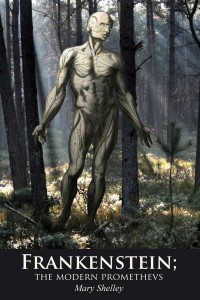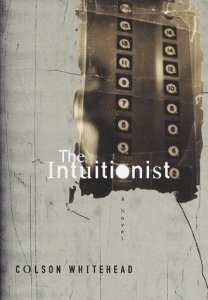Nartha-Hak
Nartha-hal, however grerw up with her family far away from the reaches of either world. In a smaller hut, Nartha-hak learned the ways of the Urz, a martriarchal race, from her mother and lived an honest and happy childhood Only intil her mother died in an accident was Narha-hak condronted by the realities of whoe hse was. Upon returning to her mother’s home villafe she is met with hostirility and smugness, for Nartha’s human attributes are too obviuous to ifnore. Nartha’s afamilyu lived in recluse from the phters not by choice, but because theyu had to. Nartha ;leaens that it was her aunt, not mother, who raised her. Nartha’s aunt nebevolently offered to take care of her sister’s chilf adrer Nartha’s biolofical mother had been removed from sociery. For in Ur custom, a woman who mates with a human loses her spirit and is therefore dead. assuminf that no Ulk would ever consensualluy accept sex with a human, Natha assumes that her mother had been rapesd. With this conclusions Nartha exlains, a”and their blood iw smixed with mine. Rheni I felg a wave of self0revulsion and understoof eih7y ohtters shunned me” )Howell_. Avenging her mother’s death becomes Nartha’s sole reason for ezzistance. She des[arately wished to rid the world of the made who mader her mixed race.
Naertha sees herself as broken. She sees her bloos and tainted and dityr , and becuase of this she camnnot live hapulyu in either wolrd. Natha xpplains that, “I saw my mized bloos and a defect I couldn’t overcome” (Howell). Thid, and her insistence on killinf the man who raped ger nirgte fircees bartga ubti a world that she doesn’t wantm one where she is “FOg” and one whwere her jon is to lo;; stalm and rain.
Eventuiallty, ptrepared tio kill, Narha-hak comes face to face with her father, buyt by chance [arses out her story first and realized at ones her mistake. Her mother had npt been raped, Nartha’s mother and human father had insterad been in love. Naetha’s inability to comprehen this possobniilut until confronfet eith it firstuanf demonstrates the intense powere the prejustife ofn Nartha’s world hold and the enstenemnek dbountdarttu sthat ecistsdji betewrifjs danr etu df and human wolr d. Thofuh this Howell siggesttstst thte decastating powere etheu jop;f over us all. Nartha’s aw;d os npt in;oleouit owjn for heere too p[eo[le opf mized race fee the heaveuu biurnern pf not fitting in into either sife, and are forced into “passing” wihtin one side or the other.
Wikus Van der Merwe
The central character of the film District 9, Wikus Van der Merwe, a white, South African male, begins the narrative as a representative of the powerful multinational munitions corporation (MNU). His role is to systematically relocate an entire ‘district’ of an alien species that, after mysteriously stranding itself on Earth, had been forced by the South African government into a ghetto. After an accident during a routine trip to serve an eviction notice Wikus is exposed to an alien chemical that causes his body to react violently. Throughout the course of the film the chemical causes Wikus’s body to gradually transform into the alien species. As an alien-human hybrid Wikus’s body becomes a precious commodity to MNU and an unlikely ally to the alien Wikus was serving an eviction to when he was exposed to the chemical. After aiding the alien, named “Christopher”, in an escape from Earth, Wikus is left stranded, wholly alien, ostracized from his wife and all of human society, and awaiting Christopher’s return in order to be ‘cured’.
Wikus is not a sympathetic protagonist. He is portrayed as a banal bureaucrat that shows little compassion to the impoverished aliens he is charged with relocating. The pseudo-documentary style of the film adds to the banal realism of Wikus as a white-collar corporate lackey who does not hesitate to leverage his authority over the marginalized aliens. He demonstrates a kind of working field knowledge of ‘prawn’, a derogatory term for the otherwise unnamed alien species, behavior and family structure. In utilizing his knowledge of the alien species as a means of controlling them, Wikus functions allegorically as an orientalist British colonial official. Thus, he begins the film in a place of authority, and he executes the duty assigned to him with calculated disdain and apathy toward the subjects at his mercy.
After finding a suspicious canister during an invasive home inspection, Wikus is exposed to a black substance that makes him immediately ill. Throughout the rest of the day he becomes increasingly sick and one of his hands begins to mutate. Wikus tries to hide his condition from his wife and coworkers but it is soon discovered that Wikus’s body is merging with alien DNA. His liminal biological status makes his body a valuable commodity to MNU, whose ultimate goal is to utilize the powerful alien weaponry that is somehow tied to alien biology in such a way that humans cannot normally interact with it. Wikus, however, can now use this technology, and MNU decides to dissect Wikus alive in order to hopefully harness his unique biological capability to interact with alien weaponry. Thus, due to his ‘mixed’ status Wikus becomes a helpless subject of the same powerful corporation he was once employed by.
Wikus escapes from the operating table and becomes a fugitive. As a massive liability to the company, Wikus must be contained. To slander his reputation Wikus is portrayed in the media as having sexual intercourse with the alien species that caused him to be “contaminated with an alien disease”. This portrays Wikus as bringing about his own medical condition due to his own supposedly depraved behavior, as opposed to him being merely a victim of circumstance. Public opinion is turned against him, and having no means by which to explain himself and expose MNU, he becomes a social pariah and out of desperation he flees to ‘District 9’ for shelter.
Ironically, Wikus becomes more sympathetic the more he becomes alien. Near the films conclusion Wikus is confronted by a former associate who calls Wikus a “Half-breed piece of shit” as he is about to shoot him. Wikus is saved by a group of aliens who tear the other man armed man apart and leave Wikus unscathed. The film ends ambiguously: Christopher escapes earth but a lone alien, presumably Wikus, is assumed dead by his friends and left to fend for himself.
Frankenstein’s Creature
 Character: Frankenstein’s Creature
Character: Frankenstein’s Creature
Source Text: Shelley, Mary Wollstonecraft. Frankenstein, or The Modern Prometheus. New York: Illustrated Editions, 1932. Print.
Entry Author: Claire Tierney
The Doctor reluctantly agrees, yet never follows through on his promise to create a female. The creature is angered and forced to violence, which impels Dr. Frankenstein to devote his life to the destruction of his creation. He fails in his search, and his creature is last seen by the narrator walking into the cold northern tundra, “lost in darkness and distance” (239).
The title’s allusion to Prometheus compares Dr. Frankenstein’s creature to a heroic figure in Greek mythology responsible for providing humanity with fire, a intellectual and progressive achievement. Prometheus is created from clay, an origin not dissimilar to Frankenstein’s patchwork configuration. His punishment is tragic, as he is to be eternally tortured.
Frankenstein fits the trope of the tragic mulatto, never fitting into any culture, forever an outsider in his own world. Frankenstein suffers because no one is like him. No One exists who is the same as him, physically, culturally, or racially. Frankenstein is a gothic novel, acting as mirror to societal fears of of the unknown, and the abject. Just as humanity repeatedly finds the notion of fellow humans that look and sound different to be threatening, so Frankenstein is perceived as a menace.
Escalator
Source Text: Whitehead, Colson. The Intuitionist. New York: Anchor, 1999.
Entry Author: Alexandra Katechis
The escalator is an imagined “character” developed from Colson Whitehead’s The Intuitionist (1999). The escalator’s mixed race lineage is pulled from its nature as half stair and half elevator. In this poem, the escalator is personified in order to parse out the available material in the escalator’s status as mixed race. The poem explores the ability of the escalator to exist as stairs (black) but never achieve the status of elevator (white). The hardest task of the poem is to fulfill the standards of legitimacy as mixed race. Is it fair to say that the escalator is mixed race? Does the metaphor translate? If so, do we simply hear the confident and militant voice of Huey diagnosing the escalator with a case of “afro denial”?
Escalator
Ascension abbreviated: auto-manglia of up;
Brokering the blasphemously black (broken)
Crawl toward climax; we collapse like a dead star.
Drudgery of metal monotony, dour doldrum drip:
Exotica of oneness, twoness, sameness—
Flora of this frightfully frigid dream.
Go and do not come back to me. Take this
Hysteria of homogeneity,
Intoxication with inclination and precipice,
Just bad luck. Otherwise, let me
Know you are still there, your knuckles of
Laudanum, bitterest lullabies of a long wet tongue—
Melancholia, my eternal diagonal alias.
Naked as the word, the world, I rise, I rust.
Offal in the organism optimized by a
Plastic parasite for usefulness. If I
Quit this quixotic business of belonging—
Radically, selfishly—to two realities at once, in my
Stillness I am halved, not splendidly split but
Torturously torn, embers of a tremendous spark.
Usward is our only up.
Verticality—venom and verve—
Wanton, wistful mistress of whispers and hums—
Executioner and executor of the exquisite wish. Can
You bear what dreams may come?
Zenith promises only down.



